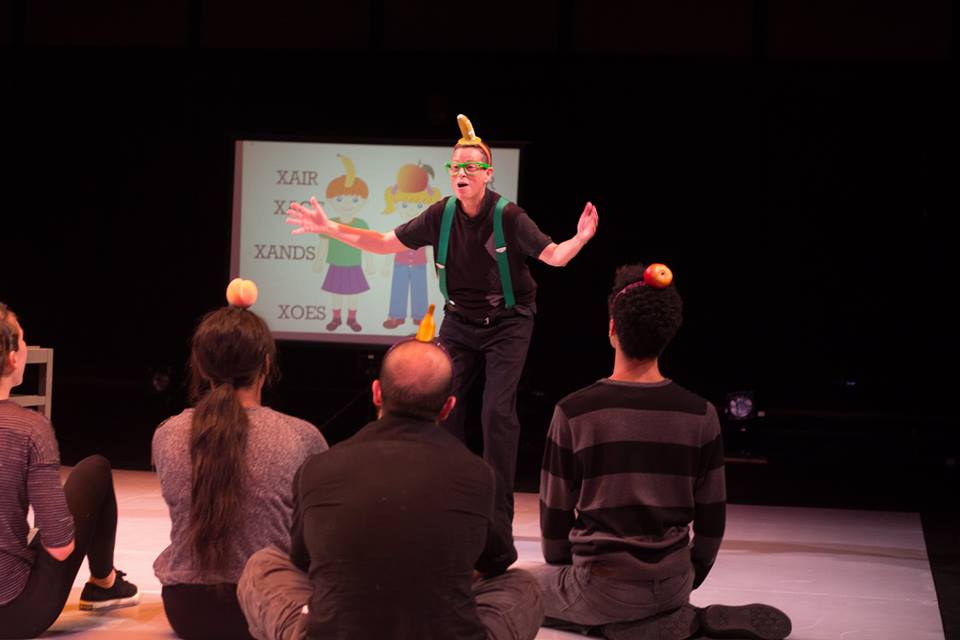
Playing through August 13, 2016. Photos by Paul Fox
Presented by Company One
Written and Directed by Natsu Onoda Power (with contributions by Jade Sylvan)
(Boston, MA) The T Party is colorful potpourri of a show: bright, engaging, and eclectic in design. The skit format gives a wide range of stories based under the LGBTQ (QUILTBAG?) umbrella usually, but not always, focused on gender. Natsu Onoda’s anecdotes come in a wide range, some as feel good as a ‘90’s prom in the style of Lisa Frank that opens the show. Others are more awkward, like a Craigslist meet up between a cis male identified crossdresser and a trans Filipina escort. The scope is broad and looks to simultaneously create community and intimacy. Without focus on an individual narrative, the tone shifts between joy and sadness wildly, suddenly, as if the two emotions weren’t separate at all, but a continuum of the same experience.
Stand out performances include, well, pretty much everyone. Each actor brings their A game.
Mal Malme shines in a lip sync performance of Aerosmith’s “Dudes (Looks Like a Lady)” and later as a school teacher in an alternate universe where gender is deconstructed for elementary school students.
Alyssandra Taylor breaks hearts with Gigi Watson in a story that directly addresses “L.U.G.” or the unfair narrative of “Lesbian Until Graduation.”
Alex Jacobs hands in an aching performance about how communication via internet both frees and isolates individuals looking for acceptance. The last is the best on-stage depiction I’ve seen of online conversation.
David J. Castillo is a chameleon on stage. Matthew Dray and Kadahj Bennet radiate confidence.
The play crushes it. Its only obstacle is its narrative structure, where loosely interconnected pieces shift quickly in tone and time. There’s no one idea to grab onto for very long. If the T Party were an actual party, it would serve its guests buffet style.
Actors in dolphin suits? Sure! A brutal description by the amazing Jade Sylvan of gender re-assignment surgery? Okay, let’s include that, too! A meditation on the way breasts are politicized and punished? Go for it!
Much like gender, there’s no use for either essentialism or a single story.
In looking to grab onto every idea, The T Party never really has time to develop one fully. That’s a shame. But also, that’s okay. This is a show about embracing the common threads of experience, a call for community, action, and empathy. It knows its own tragicomical tone, its specific brand of mania. It’s about every letter in the alphabet soup of sexuality and gender expression politics—of course it doesn’t have one form. This is the kind of show that potentially has hundreds.
I’m split over the play. I like its spirit and the quality of its heart. It’s cute. Real cute, actually, especially the part with the “nature preserve” of Bears and Otters at a night club.
I also like a show with focus. Cramming something as big and complicated as how humanity in the 21st century relates to gender and sex is a monumental task. The ups are high and beautiful as a prom that actually welcomes every student that attends it while the lows are dark, painful. Of course the result feels formless—beautiful, but without containment.
But that could also be because The T Party just can’t be contained, so why both trying in the first place?
